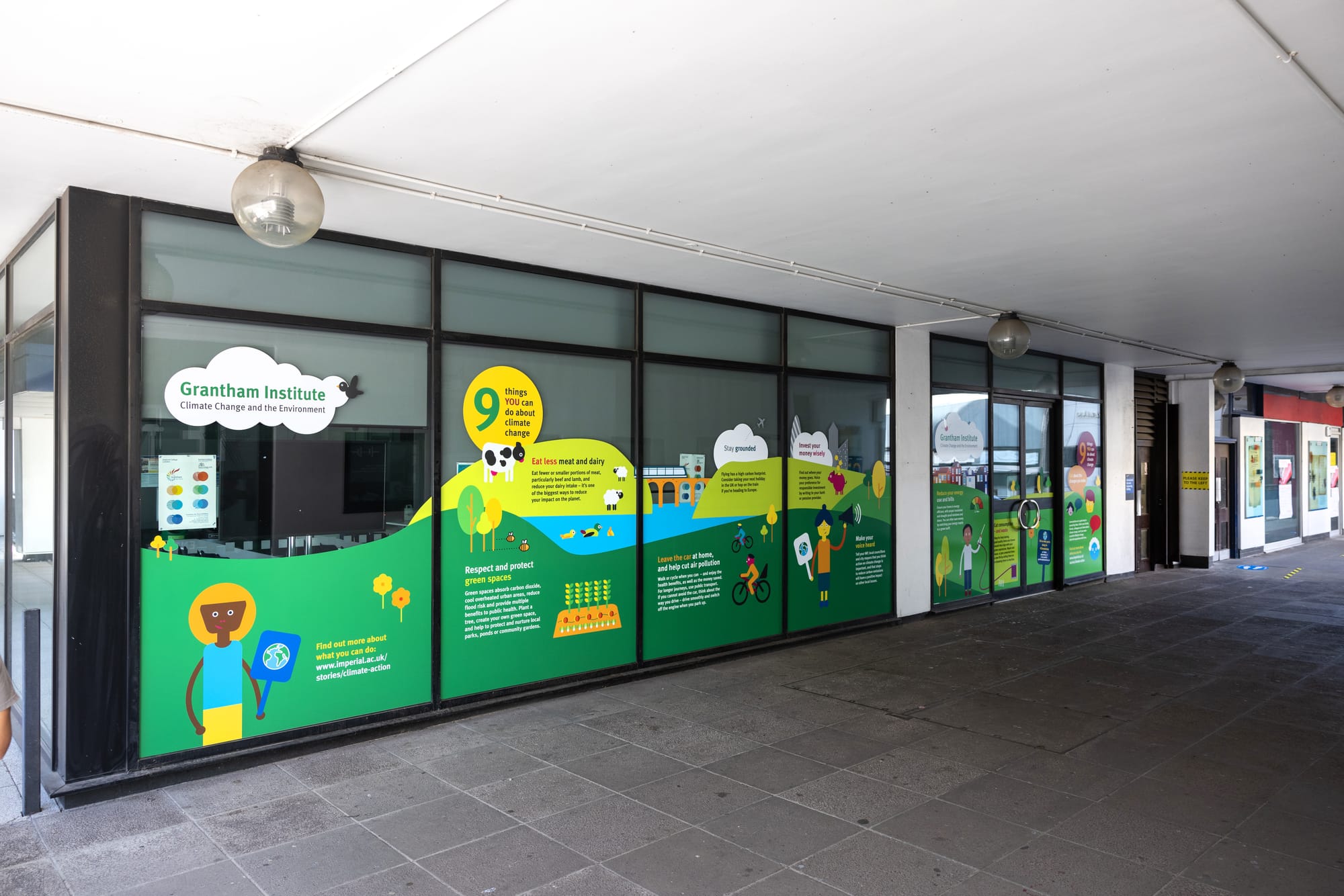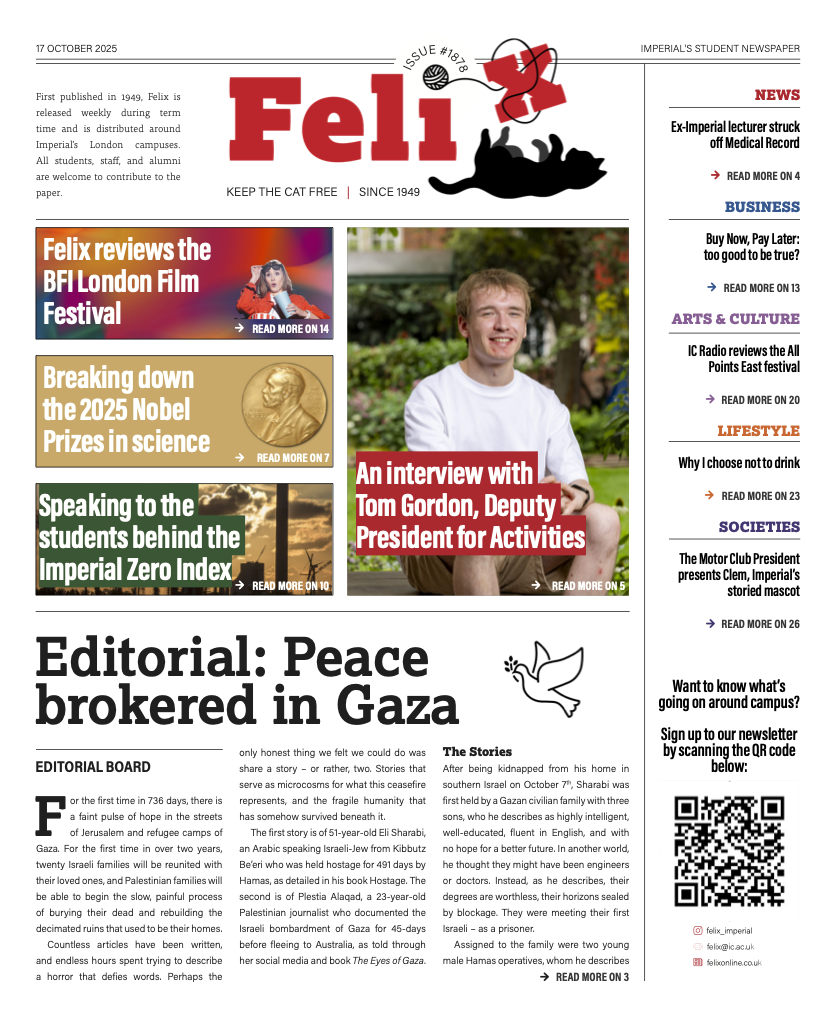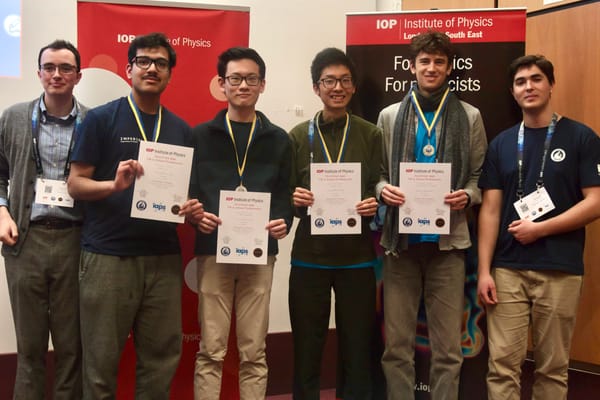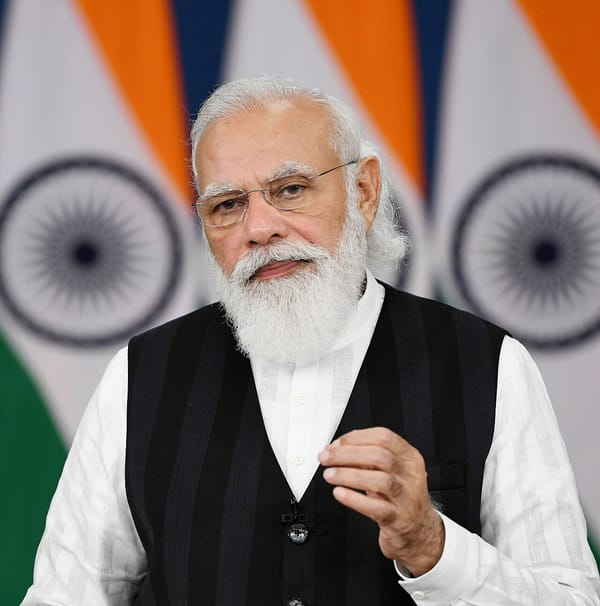Speaking to the students behind the Zero Index
Imperial uses its Zero Index to assess which fossil fuel companies it should maintain research partnerships with. In the most recent round of assessments, the University approved BP, Equinor, ExxonMobil, Petronas, Shell, TotalEnergies, and Woodside Energy.
Felix has been reaching out to the staff and students who worked on the Index and has spoken to both student representatives on the Socially Responsible Investment Engagement Monitoring Panel (SRIEM Panel), which signs off on the results of the Index. Imperial has not responded to requests to speak to academics who worked on Index.
The students Ida Caspary and Nico Henry are both on the SRIEM Panel. Ida was chosen by the panel’s chair Prof Mary Ryan and Nico is there in his role as Union President. Neither of them speak for the panel.

Ida and Nico have only been involved in the second round of assessments, the results for which we expect to be released in a few months. Ida explained her role on the panel “We were equal; of course, there’s always someone who leads the panel and then we step in through it but I was able to say whatever I wanted. They asked and there was space. There was no going too quickly over points or anything like that.”
There is a working group separate to the panel which works out the scores, Ida explained. This group gathers all the data and calculates the scores. When the scores are approved by the SRIEM panel they become the recommendations which go to the University Management Board.
Julia Mitra, the Union Ethics and Environment Officer, would like students to have been involved in creating the metrics or working out the scores, although Ida and Nico noted that their feedback goes to creating better criteria in the next round of assessments.
The College has a strategy of engagement for change which gives fossil fuell companies (FFCs) a key role in the transition to renewable energy. The fruits of this so far have involved work on carbon capture and storage, materials for the hydrogen economy, battery systems for energy storage, and electric vehicles.
The index assesses companies using a variety of metrics, and these metrics are improved each cycle. Last year this included the Oil and Gas Climate Initiative’s (OGCI) methane target. The OGCI is an industry organisation, with its members including BP, Equinor, ExxonMobil, Shell, and Total, which focuses on technologies to reduce emissions through carbon capture and store and methane emissions. They say they are “leading the industry’s response to climate change and accelerating action towards a net zero future consistent with the Paris Agreement.”
I asked about the stated belief that FFCs should be a part of the transition to net zero and Ida said “I really don’t know if they should play any role in the transition because their objectives are profit and that might clash with climate objectives. Originally Imperial worked with these companies and this was taken into reins [by the Zero Index] which says there can’t be any investments in companies that don’t abide by it. Now, that system is in place and so there’s no direct investment by them. This system can cut out some companies that are clearly totally going in the wrong direction.
“If metrics like looking at historical results are able to show that these companies don’t go in the right direction, i.e. that if the companies continue doing what they are doing that harms the climate further, then it is possible that it can cut [the number of FFCs we work with] down further and further to potentially none.
“I really think it can be a lot better by making the metrics better, and I don’t think it’s bad the way it is. I think it’s a great development to have the system as it is because it helps a lot. It is really able now to cut out some companies completely that we were working with. It’s really bad for the researchers who were working with them, on for example, carbon capture and storage and now cannot work with these companies anymore even though they gave us funding.”

A 2022 article by Mei Li et al cited in the Zero Index says “Multiple studies document how oil majors have strategically spread misinformation and aggressively obstructed progress toward climate action. ExxonMobil is a flagrant example, having strategically denied climate change and propagated disinformation to mislead the public for over 20 years. Multiple majors have tried to shift the responsibility for climate change onto consumers. The biggest American and European majors have also spent millions lobbying to delay or weaken climate policy. Recently, oil majors are observed to be using advertising on social media platforms to influence public opinion and promote an image of green fossil fuels.” And concludes “Until actions and investment behavior are brought into alignment with discourse, accusations of greenwashing appear well-founded.” This is a topic Ida is particularly worried about, she said “Even if not caring about anything else, the university should have a strong interest in not having greenwashed research.”
We continued to discuss how the Index uses industry reports for a lot of their metrics. Alongside a consistent campaign of misinformation, the Fossil Fuel Industry has recently rolled back some targets, perhaps because of President Trump’s re-election. This makes assessing how likely a company really is to meet their targets important, alongside checking if the targets are in line with a sensible pathway to below 2 degrees of warming. Of the 21 metrics in the Zero Index only 7 involves data on actions. The rest are about targets and policies the companies have set.
Ida also attended and spoke at a teach-in organised by Imperial Climate Action, Imperial College Friends of Palestine, and Environmental Society. There was discussion of how the college invests and of the Zero Index, as it is currently the only policy governing research connections.
Ida and Nico both thought more work was needed on the metrics. Ida said “There are so many things that might be interesting coming from companies that might be a red flag for working with them but I don’t know how they could best be included. I think this needs some robust research.”
Ida hoped that in the future something like the Zero Index could be extended to cover more than just climate. “In climate there are more things that could be included, but then it can be extended of course to other issues. … I’m pretty sure this is the most sophisticated system that any university has for figuring out who they should work with, and this is actually working.” She valued the fact that this was a specific system for Imperial’s needs that goes straight to the source for data.
Both Ida and Nico saw the potential for this system to be excellent and added that the process as it stood seemed robust, even if its not harsh enough on FFCs.
Nico said there that if students have strong feelings about the metrics, they could formalise through a Union Council motion. Julia Mitra said she is working on a motion about the Index and is aiming to propose it this term.










